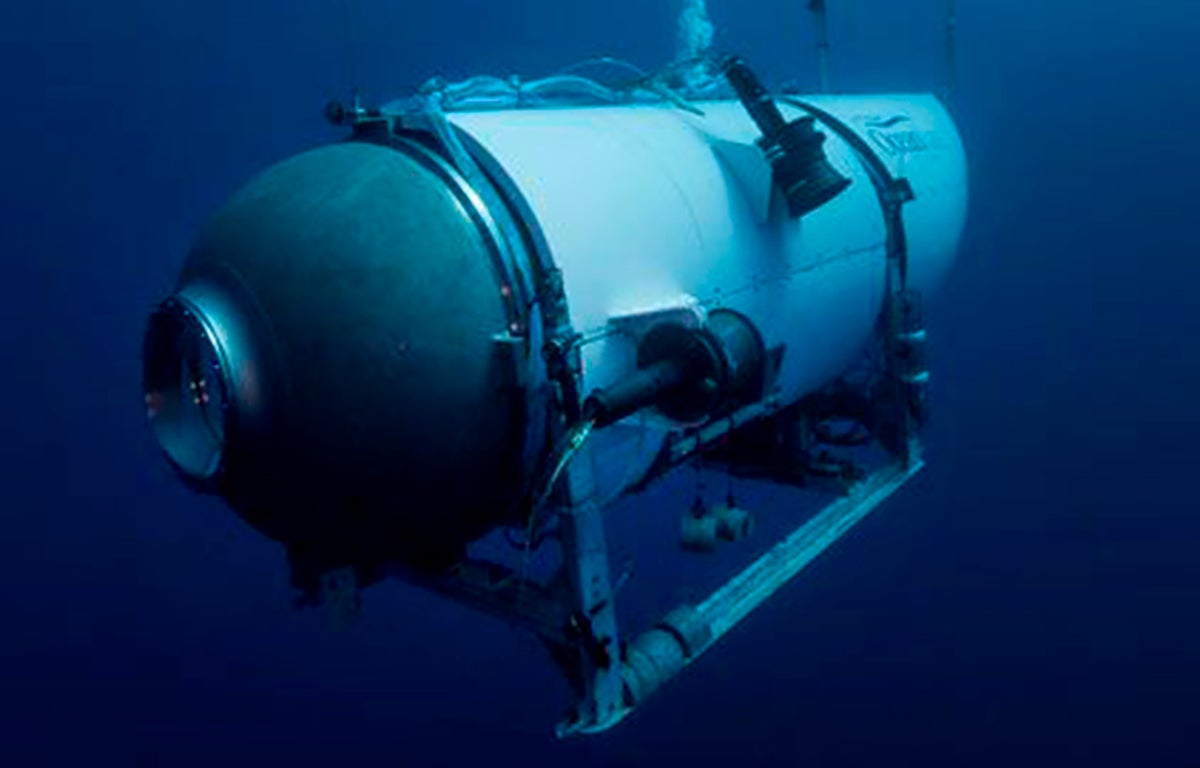
A year ago today the US Coast Guard confirmed the Titan submersible had suffered a “catastrophic implosion” an hour and 45 minutes into its dive to the Titanic wreck site.
This week the co-founder of the company behind the disaster, Guillermo Söhnlein, admitted a day has not passed since 22 June last year where he has not thought about the five men who lost their lives.
This included his friend Stockton Rush, who he co-founded OceanGate with in 2009 before Mr Söhnlein left the company in 2013.
The Argentine-American entrepreneur, 58, wrote on LinkedIn: “Last 18 June 2023, my co-founder and friend, Stockton Rush, was killed in a tragic accident at the bottom of the Atlantic Ocean. One year later, we are all still coping with the loss.
“The implosion of my old company’s research submersible near the wreck of the Titanic not only took the lives of the five explorers in its crew, but the week-long search and rescue effort became a global media frenzy.”
Mr Söhnlein, who claimed earlier this year that humanity has the capacity to “safely” send humans to Venus, said the global publicity generated by the disaster made it harder to process his grief.
He added: “I have spent every one of the past 365 days thinking about Stockton and his family, the other four crew members and their families, the current and former OceanGate employees, and all of the mission specialists and other guests who joined the various OceanGate expeditions – Titanic and otherwise – over the company’s 14-year history.
“Every one of them suffered a terrible loss, and every one of them has been coping with that loss in their own private way.”
He then urged people reflecting on the tragedy, which is still being investigated by the Coast Guard, to remember that it affected “many many human beings”.
He concluded: “Five explorers lost their lives. Four families lost loved ones, most without the possibility of a proper memorial service for fear of media scrutiny.
“Dozens of OceanGate employees lost their jobs and abilities to support their families, while at the same time facing the wrath of an uneducated general public.
“Thousands of members of the global ocean exploration community lost five colleagues and have spent the past year trying to maintain the viability of their own expeditions, projects, businesses, and careers.
“Human beings learn best from failures and grow stronger through adversity. As we navigate this anniversary week, I hope we will all exhibit respect and empathy.”
Mr Söhnlein’s words come following renewed interest in the disaster, with Titanic director and explorer James Cameron stating that OceanGate should have never been able to offer commercial trips to the wreck in an uncertified, experimental vessel at $250,000 a head.
San Francisco-born Mr Rush was related to two victims of the original Titanic disaster by marriage. Isidor and Ida Straus were his wife Wendy’s great-great-grandparents.
Mr Rush openly admitted before the disaster that he and OceanGate had “broken some rules” to make it, including his decision to use a carbon fibre hull.
Experts criticised this before and after the disaster because it is a material deemed unsuitable for diving to great depths, such as the Titanic’s 12,500 feet.
There has been speculation that in the Titan’s case the hull weakened over time, ultimately culminating in last June’s disaster which killed Mr Rush, French Titanic expert Paul-Henri Nargeolet, British billionaire businessman explorer Hamish Harding, Pakistani billionaire businessman Shahzada Dawood, and his son Suleman Dawood.
But last year’s disaster has not dampened Mr Söhnlein’s desire to explore and he is currently planning a trip to one of the world’s deepest sinkholes, the Dean’s Blue Hole in the Bahamas, which has a depth of 663ft.
The OceanGate co-founder confirmed to The Independent that the dive to the sinkhole will be carried out in classed submersibles and the crew will not be tourists, but trained professionals.
He stressed that this was always the plan for the company, and it was not changed in light of last year’s disaster.
After leaving OceanGate, Mr Söhnlein founded the company Humans2Venus in 2020.
He described the organisation as “[a] global community of Venus-focused professionals dedicated to promoting Venus as a potential long-term destination for humanity“.
In its most recent update about the disaster, the US Coast Guard said the investigation “remains active but will take longer than initially projected to complete”.







